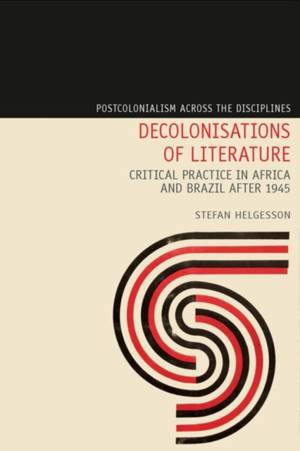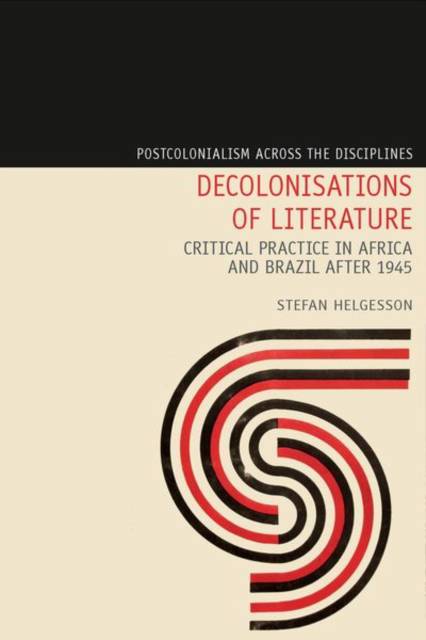
- Afhalen na 1 uur in een winkel met voorraad
- Gratis thuislevering in België vanaf € 30
- Ruim aanbod met 7 miljoen producten
- Afhalen na 1 uur in een winkel met voorraad
- Gratis thuislevering in België vanaf € 30
- Ruim aanbod met 7 miljoen producten
Zoeken
€ 93,45
+ 186 punten
Omschrijving
An Open Access edition of this book is available on the Liverpool University Press website and the OAPEN library.
This book sets out to understand how the meaning of 'literature' was transformed in the Global South in the post-1945 era. It looks at institutional contexts in South Africa (mainly Johannesburg), Brazil (São Paulo), Senegal (Dakar) and Kenya (Nairobi), and engages with critical writing in English, Portuguese and French. Critics studied in the book include Antonio Candido, Tim Couzens, Isabel Hofmeyr, Es'kia Mphahlele, Léopold Senghor, Taban Lo Liyong and Ngugi wa Thiong'o. By reading these intellectuals of the Global South as producers of theory and practice in their own right, the book attempts to demonstrate the contingency of what is her called the worlding of the concept of literature. 'Decolonisation' itself is seen as a contingent, non-linear process that unfolds in a recursive dialogue with the past. In a bid to offer a more grounded approach to world literature, a key objective of this study is therefore to investigate the accumulation of temporalities in institutional histories of critical practice. To reach this objective, it engages the method of conceptual history as developed by Reinhart Koselleck and David Scott, demonstrating how the concept of 'literature' is resemanticised in ways that dialectically both challenge and consolidate literature as a concept and practice in post-colonised societies.Specificaties
Betrokkenen
- Auteur(s):
- Uitgeverij:
Inhoud
- Aantal bladzijden:
- 208
- Taal:
- Engels
- Reeks:
- Reeksnummer:
- nr. 26
Eigenschappen
- Productcode (EAN):
- 9781802070095
- Verschijningsdatum:
- 1/05/2022
- Uitvoering:
- Hardcover
- Formaat:
- Genaaid
- Afmetingen:
- 156 mm x 234 mm
- Gewicht:
- 467 g

Alleen bij Standaard Boekhandel
+ 186 punten op je klantenkaart van Standaard Boekhandel
Beoordelingen
We publiceren alleen reviews die voldoen aan de voorwaarden voor reviews. Bekijk onze voorwaarden voor reviews.











